Disclaimer For educational purposes only. Do not use as medical advice
AboutBotanyChinese MedicineCaution
| Health Benefits |
| For: Edema • Restless fetus • Indigestion • Poor appetite • Diarrhea • Fatigue • Candida • Miscarriage |
| Attributes: Anti-inflammatory • Hepatoprotective • Immunity Booster • Hypoglycemic • Antibaterial |
| Research (sample) |
| Articles:
|
Constituents:
Butenolide A and B • Acetoxyatractylon • Hydroxyatractylon • Atractylon • Sesquiterpene lactones • Acetylenes • Polysaccharides. |
| Photos (Click to enlarge) |
|
|
| Fun Facts |
Other Names: Dong Zhu • Yu Zhu • Atractylodes, • Byaki-Jutsu • Cang Zhu • Paekch'ul • Black Atractylodes
Plant Family: Compositae |
| Cang Zhu (Atractylodes lancea) is a weaker substitute for Bai Zhu. It's roots tend to be smaller than Bai Zhu and is often used for indigestion and stomach aches. "Dr. Jiao Shude summarizes: cangzhu and baizhu both fortify the spleen and dry dampness. However, cangzhu is aromatic, bitter, and warm and has a dry and harsh nature. It upbears yang, dissipates depression, and dries dampness. It has a stronger upbearing and dissipating action than baizhu, but its ability to fortify the spleen, supplement qi, and engender blood is weaker." — Dharmananda
Bai Zhu has diuretic properties and is used to increase urination and eliminate excess fluid (swelling) in the body. Stir frying this herb (Cao Bai Zhu), makes it astringent and more drying. It is used to treat diarrhea, loose stool, and abdominal distention. |
| Species |
| Atractylodes lancea and Atractylodis macrocephalae are used in Chinese medicine. Other species are Atractylodes amurensis, Atractylodes carlinoides, Atractylodes japonica, Atractylodes koreana, Atractylodes ovata, Atractylodes rubra |
| Atractylodes macrocephala is NOT in the USDA Plant Database. |
|
USA: Atractylodes macrocephala is not found in the wild. USDA Zones: 5-9
Native: Eastern Asia, India, Japan, Vietnam, Korea
Habitats: Grassland, forests, pastures, 600m<elevation<2800m
|
| Category: Tonify Qi |
| English: White Atractylodes Root Pinyin: Bai Zhu Pharmaceutical: Rhizoma Atractylodis Macrocephalae |
| Organs: Spleen • Stomach Temperature: Warm |
| Taste: Bitter • Sweet Toxicity: None noted |
| Patterns: Spleen deficiency • Qi deficiency • Stomach deficiency • Dampness |
| Actions: Tonify Spleen Qi • Stop sweating • Calms fetus • Dry dampness • Stabilize exterior • Stop sweating |
| Indications: Edema • Poor urination • Sweating • Diarrhea • Vomiting • Poor appetite • Fatigue • Sudden sweating • Phlegm-fluid • Painful obstruction • Restless fetus |
| Contraindications: Autoimmune disorder • Yin deficiency with heat • Dehydration • Foods: black carp, Chinese cabbage, peach, plum and coriander |
| Typical Dosage: 5g to 9g Guidelines |
| Parts Used: Root |
| Other: Bai Zhu is more Spleen focused while Cang Zhu is more for dampness |
| Combine With |
Purpose |
| Zhi Shi |
Qi Stagnation and spleen deficiency: poor appetite, gas and bloating |
| Cang Zhu |
Vaginal discharge |
| Dang Shen + Gan Jiang |
Middle burner deficiency cold: diarrhea, bloating, vomiting, and stomach aches |
| Su Geng + Chen Pi |
Qi stagnation: bloating and restless fetus |
| Huang Qin |
Restless fetus |
| Huang Qi + Fu Xiao Mai |
Unexplained sweating; night sweats |
| Fu Ling + Gui Zhi |
Spleen deficiency: edema and fluid retention |
| Dui Yao Pairs |
Purpose |
| Bai Zhu + Fu Ling |
10g to 15g each. Tonify spleen, dry dampness, promote urination, fatigue, poor appetite [15] |
| Bai Zhu + Huang Qin |
Bai Zhu (10-15g) Huang Qin(6-12g). Quiet the fetus (prevent miscarriages)[15] |
| Bai Zhu + Zhi Shi |
Bai Zhu (10-15g) Zhi Shi (5-10g). Spleen qi deficiency. Gas and bloating. Constipation [15] |
| Formulas with Bai Zhu |
| Ba Zhen Tang • Ban Xia Bai Zhu Tian Ma Tang • Bu Dai Wan • Bu Zhong Yi Qi Tang • Dang Gui Shao Yao San • Fang Feng Tong Sheng San • Fang Ji Huang Qi Tang • Gu Chong Tang • Gui Ling Gan Lu Yin • Gui Pi Tang • Gui Zhi Shao Yao Zhi Mu Tang • Huang Tu Tang • Huo Xiang Zheng Qi San • Jian Pi Wan • Li Zhong Wan • Ling Gui Zhu Gan Tang • Shen Ling Bai Zhu San • Shi Pi Yin • Shi Quan Da Bu Tang • Si Jun Zi Tang • Su He Xiang Wan • Tong Xie Yao Fang • Wan Dai Tang • Wu Ling San • Xiao Yao San • Yu Ping Feng San • Zan Yu Dan • Zhen Ren Yang Zang Tang • Zhen Wu Tang • Zhi Shi Xiao Pi Wan • Zhi Zhu Wan • Zhong Man Fen Xiao Wan |
| Alert |
| Be cautions with all medicine. |
| Potential Drug Interactions |
|
Herbal medicine may interact negatively with pharma drugs and other herbs. Examples below:
Herbs: ♦ Diuretic: Heal All
Pharma Drugs:♦ Diuretic: Acetazolamide, Aldactone, Amiloride Hydrochloride, Bumex, Diuril, Diulo, Demadex, Dyrenium, Edecrin, Enduron, Hydrodiuril, Hygroton, Lasix, Lozol, Methazolamide, Mykrox, Zaroxolyn
|
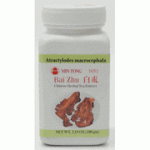 Extract
Extract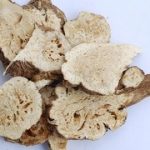 Dried Root
Dried Root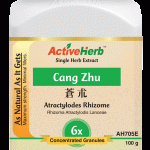 Granules
Granules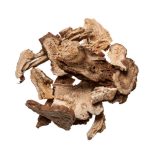 Dried Root
Dried Root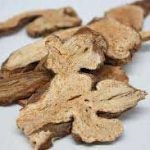 Dried Root
Dried Root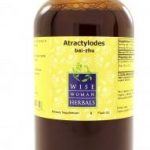 Tincture
Tincture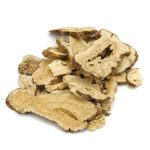 Powder
Powder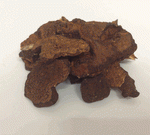 Stir Fried Root
Stir Fried Root
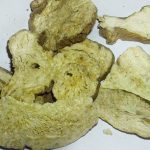
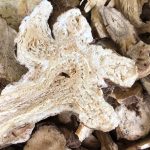
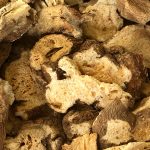
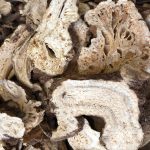
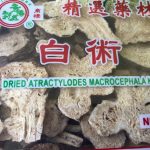
0 Comments